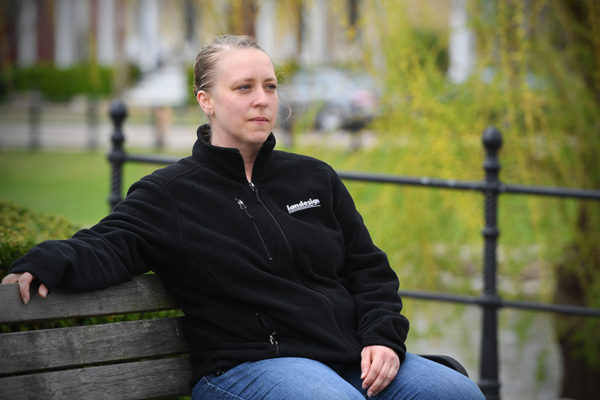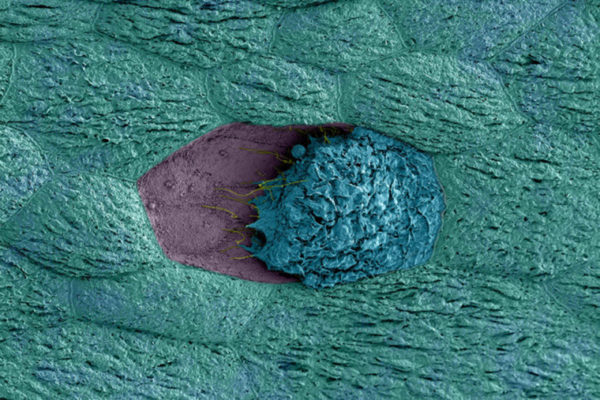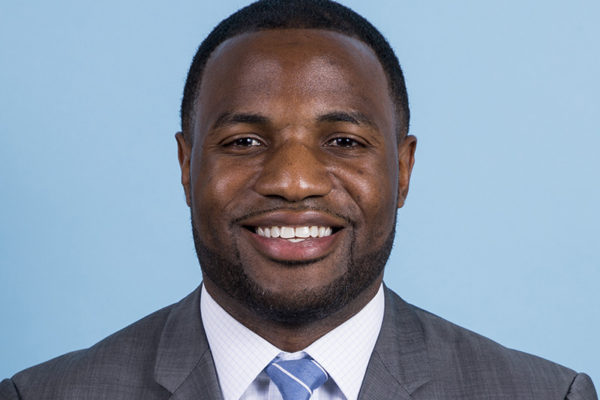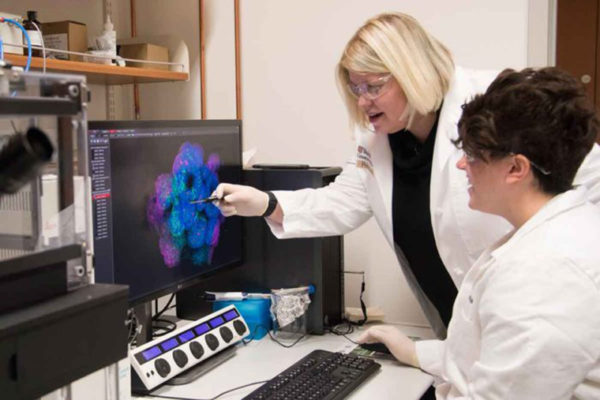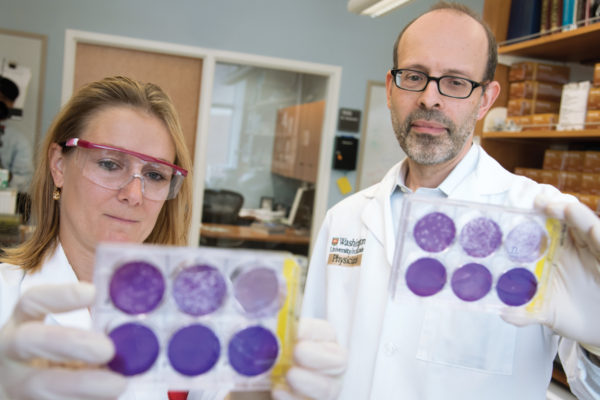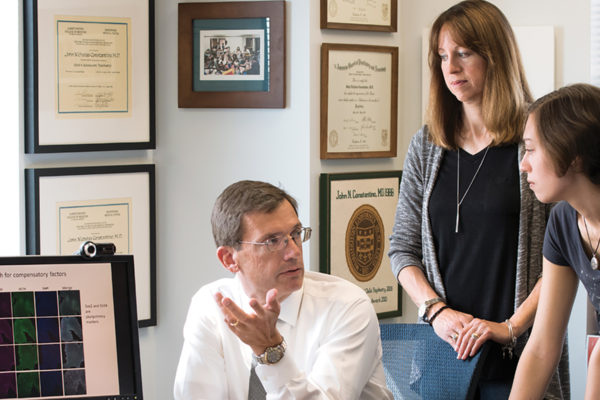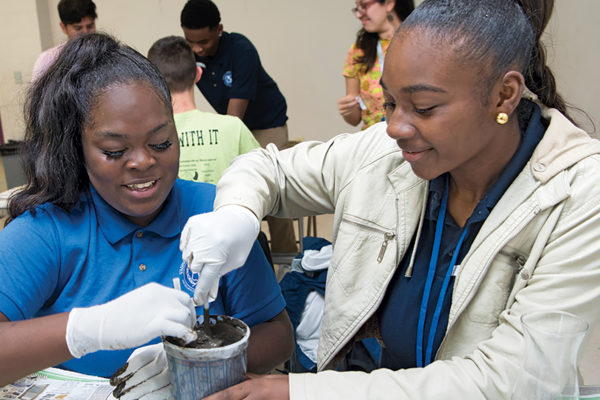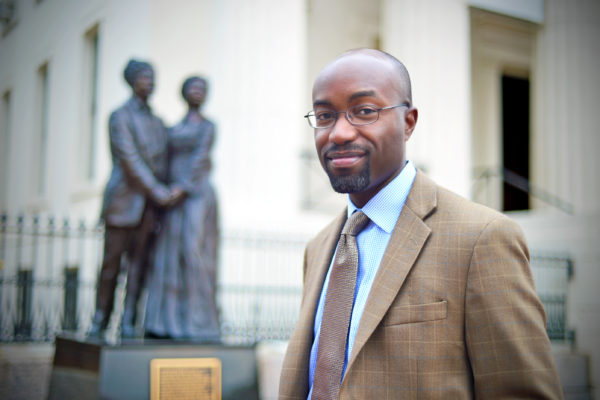Peacock: ‘Put us together and magic happens’
University College’s Angela Peacock will graduate Phi Beta Kappa and will continue her Washington University education at the Brown School studying veteran issues.
Vaginal bacteria can trigger recurrent UTIs, study shows
About half of all women will experience urinary tract infections in their lifetimes, and despite treatment, about a quarter will develop recurrent infections within six months of initial infection. A new study at the School of Medicine has uncovered a trigger of recurrent UTI infections: a type of vaginal bacteria that moves into the urinary tract.
Azama named John M. Schael Director of Athletics
Anthony J. Azama has been named the John M. Schael Director of Athletics at Washington University in St. Louis. Azama arrives on the Danforth Campus after spending the past two years as senior associate athletics director for external operations at Columbia University in New York.
‘Mini-guts’ offer clues to pediatric GI illness
Using immature stem cells to create a miniature model of the gut in the laboratory, researchers at Washington University School of Medicine in St. Louis and the University of Pittsburgh have determined how infection-causing enteroviruses enter the intestine.
Resisting Zika
As the Zika epidemic took hold, leaders at the National Institutes of Health (NIH) realized they needed to learn about the virus quickly. They started phoning select scientists, and offered funding for Zika research. The School of Medicine answered the call
Unraveling autism
A multifaceted study — one of three major approaches School of Medicine researchers are using to unravel the physical and psychological underpinnings of autism — aims to detect, treat and even reverse the disorder.
Sparking curiosity
How graduate and medical students from Washington University’s Young Scientist Program are helping share science with area students. The program has been in place more than 25 years.
Purnell named ‘Person of the Year’ by St. Louis American
Jason Q. Purnell, assistant professor in the Brown School at Washington University in St. Louis and project director of For the Sake of All, the groundbreaking initiative on the health and well-being of African-Americans in St. Louis, was named 2016 Person of the Year by The St. Louis American.
Many smokers with serious mental illness want to kick habit
Many with psychiatric problems want to quit smoking, but psychiatrists and caseworkers typically don’t prescribe medications to help them or refer them to services aimed at smoking cessation, researchers at the School of Medicine and BJC Behavioral Health in St. Louis have found.
Low levels of manganese in welding fumes linked to neurological problems
Welders exposed to airborne manganese at estimated levels below federal occupational safety standards exhibit neurological problems similar to Parkinson’s disease, according to School of Medicine research. The more they are exposed to manganese-containing welding fumes, the faster the workers’ signs and symptoms worsen. The findings, published Dec. 28, suggest current safety standards may not adequately protect welders.
View More Stories
